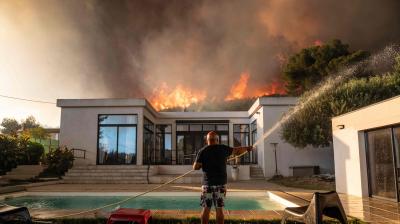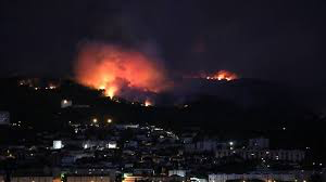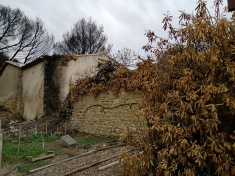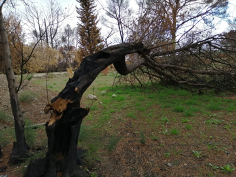
By Gaëtan Soulier, contributing writer
Photos by Deccan Chronicle and Gaëtan Soulier
In recent years, there has been a spike in forest fires. While the world and the news have focused on California and the Australian bushfires, massive forest fires have been prevalent and destructive in other areas around the globe. On Aug. 3, 2020, one of the biggest fires in the history of southern France started. With almost 2600 acres of land burned, 9000 people relocated for their own safety and a potential danger from the fire reaching nearby biochemical factories. While this fire is now under control, I interviewed both a local and a firefighter to give us insight into the event.
Claude Soulier is a southern France citizen who has lived through many forest fires. Although he lived through many of them, he says he never had his home be endangered by the fires before.
“It was the first time that I really felt scared for my home and what I built,” Soulier said. “Most of the garden burned–the very thing he took care of for years had been burned to the ground in an instant. Southern France has a history of having small pine fires in the summer because of people dropping cigarette butts, forgetting about ashes of a bonfire, etcetera.”
Local firefighter Kevin Delacroix tells us that this year was particularly dry; the fire started with just a cigarette butt.
The dangerous part of a fire starting during a very dry season and in a windy environment is that in most cases it is not reported early enough to be contained. This is where firefighters must communicate effectively and act fast. I was fortunate enough to have a firefighter willing to explain to me the strategies used to contain the fires.
A local firefighter explained that “Our first priority when it comes to fires is to surround as many houses as possible and hold our grounds until the Canadair [a French plane used to throw water on the fire] extinguishes the fire.”
He acknowledged that it was not the best way to go about it in his opinion as the last forest fires that happened in Southern France burned nearly 2600 acres of land. According to him, the best way would be to surround the fire as best as they can and suffocate it by reducing a circle over and over until it is controlled.
However, while the fire is being contained, the damage is already done, and people will have to live with a devastated landscape for years before nature can regain its rights. Whether the fire is stopped or not, we can only hope that the emotional toll on people is manageable. The emotional value placed on the forest that burned or the gardens of people is enormous. A vast majority of people from the South have lived their entire lives there, so to see symbols of their life burn to the ground is very hard.
Claude agreed to share with us his feelings regarding the state of his garden. “It is just sad, there is not much to add to that,” Soulier said. “I had an olive tree here, my favorite, he had been standing in that garden since my great grandfather planted it. It was up for nearly 200 years and now it’s just a pile of ash.”
On that previous note, Claude asked me to point out the fires that happened when he was a child burned as much–if not less–land. It then raises the question about our capabilities to stop the fires.
“Our firefighters had barely three firetrucks in the ‘60s and the fires still went down to the sea; we are in 2020 our firefighting department has hundreds of firetrucks and it still goes down to the sea,” Soulier said.
There have been more and more fires happening recently during the summer and with the inability to stop them effectively it really raised a lot of questions about people’s security.
Losing your garden and potentially losing the home you have lived in for years is devastating. It is with assurance and hope, however, that Kevin Delacroix says “it is very unlikely that houses get burned down, and this year taught a lesson, we are already working on our methods to become more efficient!”



Gaëtan, thank you for sharing this story. It’s interesting to know that forest fires are a global challenge, not just something that happens in the U.S.